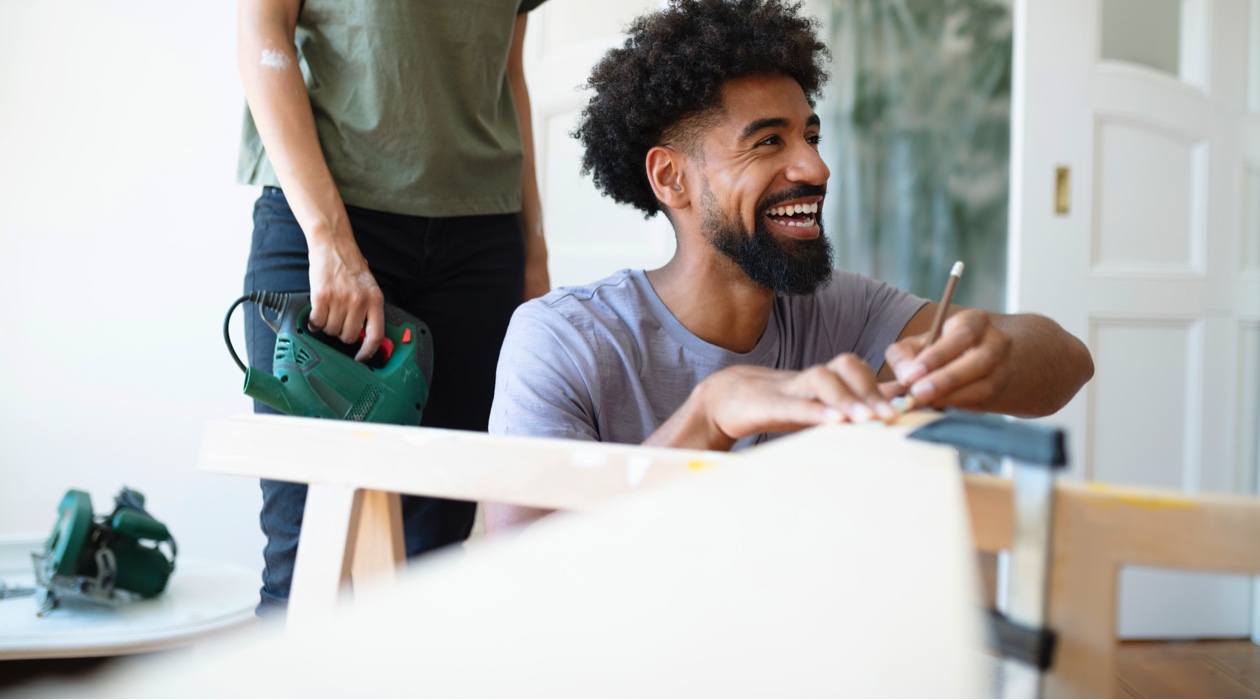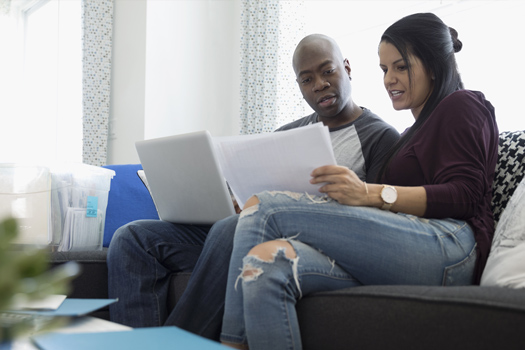
How to get a mortgage
Getting a mortgage is the first step to buying your fabulous new place. Here, we’ll take you through what you need to do, from the moment your heart skips a beat at the property pages, to finally getting those shiny new keys in your hand.
Published:25 Nov 2019
Before you start looking for properties and applying for a mortgage, there are 3 key questions you need to answer:
1. How much of a deposit do you have/can you realistically save?
The simple answer? As much as possible. Lenders usually ask for deposits of at least 5% of the property’s value.
In general, the bigger the deposit, the better the rate you get. So it pays to get saving. We have some helpful hints on saving for your first home to get you started.
2. How much can you afford to pay monthly towards a mortgage?
Only you will know the answer to this but you should think carefully about how much you would feel comfortable paying monthly toward a mortgage.
Speak to a mortgage adviser or mortgage broker who will help you work out how much you can realistically afford to borrow. They’ll base their decision on the money you’ve got coming in (salary, overtime) against what’s going out (bills, loans).
3. How much money can you borrow?
The last thing you want to do is set your heart on a property that you can’t afford, so get an idea of how much you’ll be able to borrow before you start looking.
Most mortgage sites have handy mortgage calculators that calculate your income and expenditure – giving you an idea how much you could borrow.
Once you have answers to these key questions, the next stage is to get a decision in principle from a lender.
Getting your Decision in Principle
A Decision in Principle is a written estimate stating the amount of money your lender is theoretically willing to offer based on the information provided.
You can usually get your Decision in Principle within 24hrs – the term this is valid for differs from bank to bank.

Property Valuation Report
Found the home of your dreams? It’s time to get your practical head on.
To make sure the property you have your heart set on is all that it seems - a valuation will be carried out.
Progressing from Decision in Principle to Offer in Principle
Offer in Principle
If you’ve had an offer on a property accepted, the valuation is in order and have agreed on a price, you will need to progress your Decision in Principle to an Offer in Principle.
To do this you should contact the provider or broker you arranged the decision in principle through to progress your application to the next stage.
Most lenders will allow 90 days to have the information you provided during your application verified, the valuation to be carried out and solicitors to be appointed. Every lender is different and you should check with yours to be certain.
This is final stage of your mortgage application journey so will require a full credit check.
When you apply for a mortgage make sure you have all the information you need to hand, which may include:
- Original copies of payslips from the last 3 months
- Self-employed/freelance need to showing accounts for 2 to 3 years
- P60 form from your employer(s)
- Photographic ID like your passport or driver’s license
- Evidence of any benefits
- Utility bills – gas or electricity, not mobile phone
- Current account statements up to 3 months
- Savings account statements
Important information
The content on this page aims to offer an informative introduction to the subject matter but does not constitute expert financial advice specific to your own situation. All facts and figures were correct at time of publication and were compiled using a range of sources.